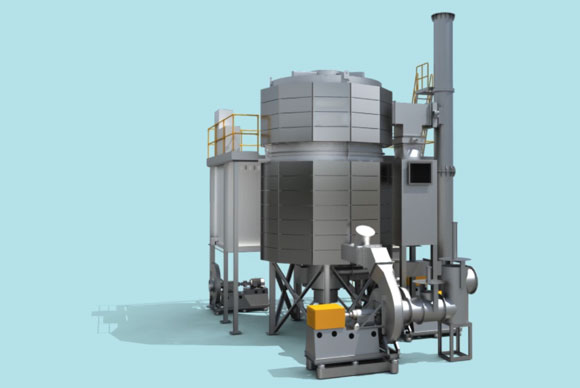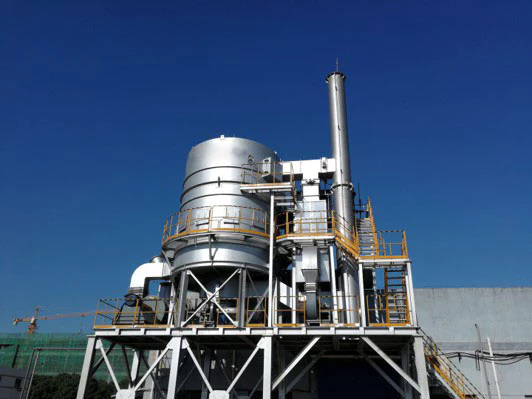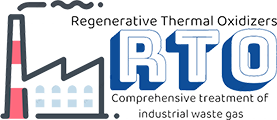What are the safety considerations when operating a regenerative thermal oxidizer?
Safety Measures
- Regular maintenance and inspection of the regenerative thermal oxidizer (RTO) system to ensure it is in proper working condition.
- Implementing proper training programs for operators to ensure they are knowledgeable about the system’s operation and safety procedures.
- Installing safety devices, such as emergency shutdown systems and gas leak detectors, to prevent accidents.
One of the primary safety considerations when operating a regenerative thermal oxidizer (RTO) is to conduct regular maintenance and inspection of the system. This ensures that all components are functioning correctly and minimizes the risk of malfunctions or breakdowns that could potentially result in safety hazards. By adhering to a strict maintenance schedule, operators can identify and address any issues promptly, reducing the risk of accidents.
Another crucial safety measure is to provide comprehensive training programs for operators. It is essential that operators have a thorough understanding of the RTO system’s operation, including start-up and shutdown procedures, emergency response protocols, and safety precautions. By equipping operators with the necessary knowledge and skills, the risk of accidents can be significantly reduced.
In addition to maintenance and training, installing appropriate safety devices is vital in ensuring the safe operation of an RTO system. Emergency shutdown systems can quickly stop the operation of the RTO in the event of an emergency or malfunction. Gas leak detectors, on the other hand, can detect the presence of potentially hazardous gases and alert operators, allowing them to take immediate action to prevent accidents or harm.
Fire Prevention
- Implementing proper fire prevention measures, such as installing fire detection and suppression systems.
- Regularly inspecting and cleaning the RTO to remove any combustible materials.
- Ensuring proper grounding and electrical safety measures are in place.
When operating an RTO, fire prevention is of utmost importance. Implementing appropriate fire detection and suppression systems can help identify and extinguish fires quickly, minimizing damage and ensuring the safety of personnel. These systems should be regularly inspected and tested to ensure they are functioning correctly.
Regular inspection and cleaning of the RTO system are essential for fire prevention. Combustible materials, such as dust or residue, can accumulate within the system and increase the risk of fire. By conducting routine inspections and cleaning procedures, operators can remove these materials and reduce the probability of ignition.
Proper grounding and electrical safety measures are also crucial in preventing fires when operating an RTO. Faulty electrical systems or improper grounding can lead to electrical sparks, which can ignite flammable materials. Ensuring that the RTO system is correctly grounded and that electrical components are in good condition reduces the risk of electrical fires.
Operator Safety
- Providing operators with appropriate personal protective equipment (PPE).
- Implementing proper ventilation systems to minimize exposure to harmful gases.
- Training operators on emergency response procedures.
Operator safety is paramount when operating an RTO. Providing operators with the necessary personal protective equipment (PPE), such as gloves, safety goggles, and respiratory protection, protects them from potential hazards. Properly fitting and regularly inspecting the PPE ensures its effectiveness.
Implementing proper ventilation systems in the RTO facility is crucial to minimize operators’ exposure to harmful gases. Adequate airflow and ventilation help maintain a safe working environment by preventing the buildup of toxic or flammable gases. Regular monitoring of air quality and ventilation systems is necessary to ensure their effectiveness.
Operators should also receive training on emergency response procedures to handle potential accidents or hazardous situations. This training should cover evacuation protocols, first aid techniques, and communication procedures to ensure a swift and effective response in emergency scenarios.
In conclusion, operating a regenerative thermal oxidizer (RTO) requires careful attention to safety considerations. Regular maintenance, comprehensive operator training, installation of safety devices, fire prevention measures, and operator safety measures are essential to ensure the safe and efficient operation of an RTO system.

What are the safety considerations when operating a regenerative thermal oxidizer?
Our company is a high-end equipment manufacturing enterprise specializing in the comprehensive treatment of volatile organic compounds (VOCs) and carbon reduction and energy-saving technologies. We have four core technologies: thermal energy, combustion, sealing, and automatic control. Additionally, we have the ability to simulate temperature fields and air flow fields, model calculations, and conduct experiments to test the properties of ceramic heat storage materials, molecular sieve adsorbent materials, and high-temperature incineration and oxidation of VOCs.
Our RTO technology R&D center and waste gas carbon reduction engineering technology center are located in Xi’an, while our 30,000 square meter production base is located in Yangling. We are the leading manufacturer of RTO equipment and molecular sieve rotary equipment in the world. Our core technology team comes from the Aerospace Propulsion Technology Research Institute (Aerospace Sixth Institute). Our company currently has more than 360 employees, including more than 60 R&D technology backbones, including three research fellows, six senior engineers, and 56 thermodynamics PhDs.
Our core products are the rotary valve RTO and molecular sieve adsorption and concentration rotary wheel. Combining our own environmental protection and thermal energy system engineering expertise, we can provide customers with comprehensive solutions for industrial waste gas treatment and carbon reduction and energy utilization for various working conditions.
Сертифікати, патенти та відзнаки
Our company has obtained the following certifications and qualifications: Knowledge Property Management System Certification, Quality Management System Certification, Environmental Management System Certification, Construction Industry Enterprise Qualification, High-tech Enterprise, Rotary Heat Storage Oxidation Furnace Rotary Valve Patent, Rotary Wing Heat Storage Incineration Equipment Patent, and Disc-shaped Molecular Sieve Rotary Wheel Patent, among others.

How to Choose an Appropriate RTO Device
When selecting an appropriate RTO device, please keep the following points in mind:
- Pay attention to the material of the RTO equipment. The equipment should be made of high-quality materials and have high-temperature resistance, corrosion resistance, and wear resistance.
- Understand the RTO device’s processing capacity and processing effects to ensure that it meets your project’s requirements.
- Consider the energy consumption of the equipment and its environmental impact. Choose RTO equipment with a high level of energy conservation and environmental protection, which will help reduce operating costs and achieve sustainable development.
- Choose a reputable and experienced RTO device manufacturer with a good reputation and a strong technical team. This will allow you to get a better quality product and better after-sales service.

Наш процес обслуговування
We provide one-stop solutions and have a professional team to tailor RTO solutions to our customers’ needs. Our service process includes:
- Consultation and Evaluation: Initial consultation, on-site inspection, demand analysis.
- Design and Proposal Formulation: Proposal design, simulation and modeling, proposal review.
- Manufacturing: Customized production, quality control, factory testing.
- Installation and Commissioning: On-site installation, commissioning and operation, training services.
- After-sales Support: Regular maintenance, technical support, spare parts supply.
Автор: Мія
